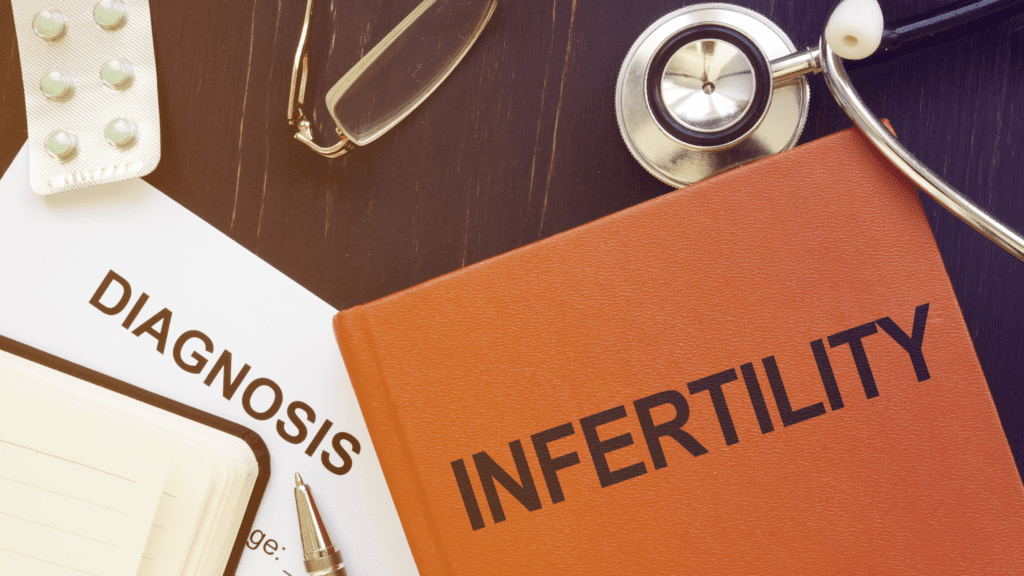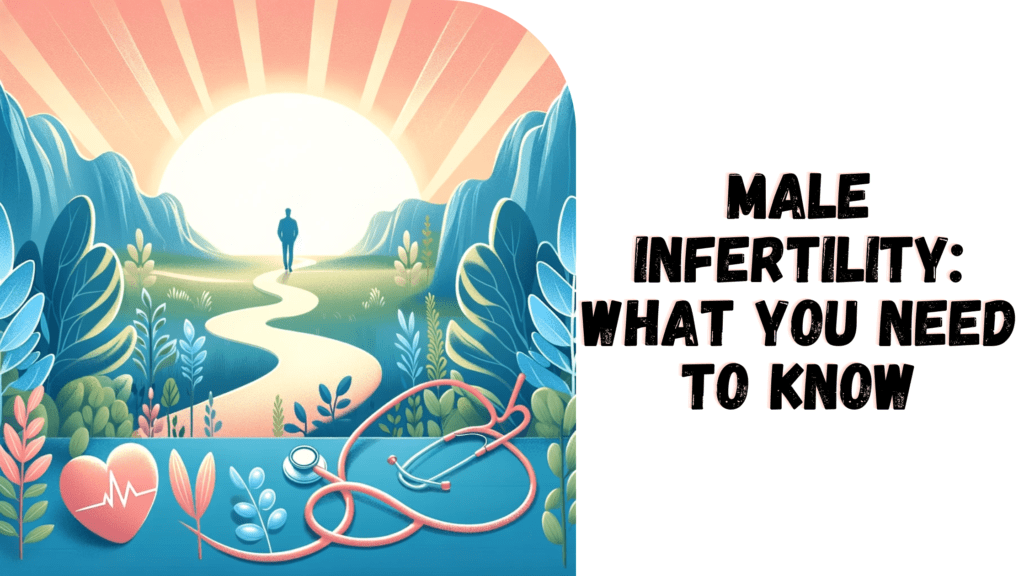
Table of Contents
Male Infertility: Understanding the Challenges and Solutions
Male infertility is the inability of a man to conceive a child. It can be caused by a variety of factors, including medical conditions, lifestyle choices, and environmental toxins. While male infertility is a common problem, it is often treatable.
This blog will provide you with an overview of male infertility, including its causes, symptoms, diagnosis, and treatment options. It will also discuss some of the emotional and psychological challenges that couples face when dealing with male infertility.
What is male infertility?
Male infertility is defined as the inability of a man to conceive a child after one year of regular unprotected sexual intercourse. It is estimated that 15-20% of couples have difficulty conceiving, and male infertility is a factor in about half of those cases.
What causes male infertility?
Some of the most common causes include:
- Smoking and alcohol: both of these can decrease the quality and quantity of sperm produced.
- Varicocele: This is a condition in which the veins in the scrotum become enlarged. Varicoceles can damage sperm production and quality.
- Infection: Infections such as orchitis (inflammation of the testicles) and epididymitis (inflammation of the epididymis) can damage sperm production.
- Ejaculation problems: This can include erectile dysfunction, premature ejaculation, and retrograde ejaculation (where the semen flows backward into the bladder instead of out the penis).
- Hormonal imbalances: Hormones such as testosterone and FSH (follicle-stimulating hormone) play a role in sperm production. Imbalances in these hormones can lead to infertility.
- Genetic disorders: Some genetic disorders, such as Klinefelter syndrome and cystic fibrosis, can cause infertility.
- Environmental toxins: Exposure to certain environmental toxins, such as pesticides and herbicides, can damage sperm production.
- Medications: Some medications, such as chemotherapy drugs and steroids, can cause infertility.
What are the symptoms of male infertility?
The main symptom of male infertility is the inability to conceive a child after one year of regular unprotected sexual intercourse. Other symptoms of male infertility may include:
- Low sperm count
- Reduced sperm motility
- Abnormal sperm morphology (shape)
- Testicular pain or swelling
- Ejaculation problems
- Decreased sex drive
- Hormone imbalances
How is male infertility diagnosed?
If you are having difficulty conceiving, your doctor will likely start by asking you about your medical history and performing a physical examination. They may also order some tests, such as:
- Semen analysis: This test measures the sperm count, motility, and morphology.
- Hormone tests: These tests measure the levels of hormones that play a role in sperm production.
- Imaging tests: These tests, such as an ultrasound or MRI, can be used to look for abnormalities in the testicles and other reproductive organs.
What are the treatment options for male infertility?
The treatment for male infertility depends on the underlying cause. Some common treatments include:
- Varicocele repair: This surgery can improve sperm production in men with varicoceles.
- Antibiotics: Antibiotics can be used to treat infections that are causing infertility.
- Hormone therapy: Hormone therapy can be used to correct hormonal imbalances that are causing infertility.
- Assisted reproductive technology: procedures, such as in vitro fertilization (IVF) and intracytoplasmic sperm injection (ICSI), can be used to help couples conceive even if the male partner has severe infertility.
What are the potential emotional and psychological challenges?
Dealing with male infertility can be emotionally and psychologically challenging for couples. It can lead to feelings of frustration, shame, and isolation. Couples may also experience financial difficulties due to the cost of infertility treatments.
It is important for couples to seek support from each other and from healthcare professionals. There are many resources available to help couples cope with the emotional and psychological challenges of male infertility.
References
- NHS page on Male Infertility: https://www.nhs.uk/conditions/infertility/causes/
- HFEA guide on Fertility Treatments: https://www.hfea.gov.uk/treatments/
Conclusion: Navigating the Path of Male Infertility with Hope and Support
In summary, while male infertility is a common challenge, it is often a treatable condition. Understanding this is crucial in embarking on the path towards finding solutions. If you’re facing difficulties in conceiving, it’s important to consult with a medical professional. They can help in identifying the root cause of infertility and assist in formulating an effective treatment plan.
It’s equally essential to acknowledge the emotional and psychological impacts of this journey. Communication with your partner is key; openly discussing your feelings can significantly aid in coping with the challenges you face together. Additionally, leaning on the support of friends, and family, and joining support groups can provide invaluable emotional support and practical advice about infertility treatments.
Taking care of your physical and mental health is vital during this time. Adopting a healthy lifestyle, getting adequate sleep, exercising regularly, and avoiding negative habits like smoking and excessive alcohol consumption are important steps. Remember, you are not alone in this journey.
For many couples, navigating male infertility involves patience, resilience, and hope. With the right support, both medical and emotional, and the advances in medical treatments, this journey can transform into a story of success and fulfilment. Let this be a message of encouragement: with perseverance, the right support, and treatment, overcoming the hurdles of infertility is a real and attainable goal. You’re on a path that, though challenging, can lead to a hopeful and successful outcome.
Remember, you are not alone.
Thank You
Thank you for Reading our Male infertility blog!
If you enjoyed reading this article, please check out our other Blogs























































0 Comments